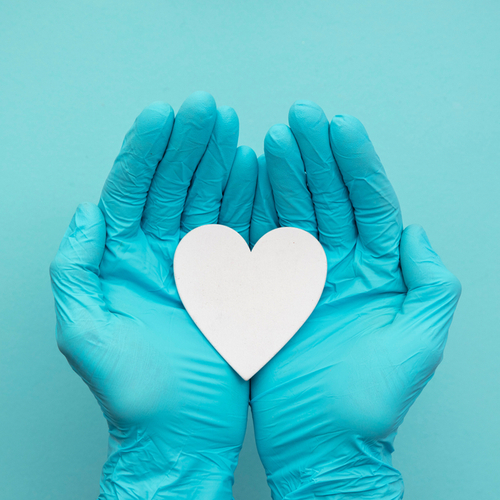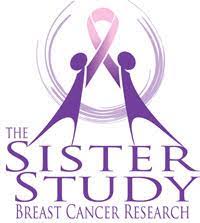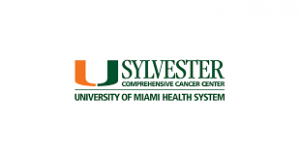
What’s It About?
Before vaccines become available to the general population over the age of 12, they need to be tested. Worldwide pharmaceutical companies and health organizations rely on volunteers for clinical trials. The data from those study volunteers may result in vaccines with high efficacy rates. And, whether you believe in vaccines or not, that is not my purpose. In full disclosure, I am not a health research study volunteer for COVID-19 Vaccines.
But I am a health research study volunteer for several health organizations. In 2004, I signed up for my first study, The Sister Study, after my sister was diagnosed with breast cancer at the age of 45.

Why Did I Volunteer?
I have three sisters, one of which is my identical twin sister. Between my sisters and me, we have five daughters. Our mother was one of five sisters. And, I have 13 maternal female first cousins. That’s a lot of women! So for our sister to be diagnosed with Stage 2B breast cancer with no genetic predisposition was frightening.
My sister asked if any of us would be willing to sign up for this landmark study. I was 42 at the time. All that I had to do was fill out a questionnaire. Additionally, I had to commit to annual mammograms. Finally, I agreed to annual family health updates and providing detailed follow-ups.
It certainly seemed innocuous.
What is The Sister Study?
The Sister Study is conducted by the National Institute of Environmental Health Sciences. They are one of the National Institutes of Health, of the US Department of Health and Human Services. From 2003 to 2009, more than 50,000 women across the US and Puerto Rico signed up. These women were between ages 35–74 and had a sister with breast cancer. Like myself, we joined this landmark research effort to find the causes of breast cancer. Because of their shared environment, genes, and experiences, studying sisters provides a greater chance of identifying risk factors that may help find ways to prevent breast cancer.
They are currently tracking the health of women in the cohort. Participants complete health updates each year, as well as detailed questionnaires about health and experiences every two-to-three years. Research in the Sister Study focuses on the causes of breast cancer and other health issues in women. Additionally, they focus on factors that influence the quality of life and outcomes after a breast cancer diagnosis.
What I Learned
After answering many lengthy qualification questions, I was accepted into the study, which is now closed. They sent three large binders of questions relating to the foods I ate from five years old and on, my physical activity from age five. The study also looked at the environment I was raised from age five up. Another consideration was my overall health and family medical history.
Fortunately, my mom was able to assist me with answering questions about my earlier years. It has been 17 years since I enrolled in the study. I do not recall all of the specifics but some stood out. They include:
- Did you ever live near an apple orchard, tannery, or dry cleaners? When I lived in New York, we had an apple orchard behind our house. The premise is exposure to pesticides.
- Did you eat fried liver? The seriousness of this question aside, I had to laugh as my mom fed us fried liver and onions monthly. It was one of my least favorite meals. I came to understand that the high levels of iron in the beef liver can promote breast cancer.
- What was your level of physical activity? Fortunately, I was a tomboy from a young age. Learning that my lifetime of engaging in physical activity lowers your risk of breast cancer was comforting. Physical activity regulates hormones including estrogen and insulin, which can fuel breast cancer growth. It also enables women to stay at a healthy weight which helps regulate hormones.
Learning these risks did not mean we would be diagnosed with cancer. Simply, they were factors under consideration. While the road has been bumpy at times, I strongly believe that the 50,000 women who participate in The Sister Study, are providing a service to other women that may mean identifying a new gene that poses a higher risk for breast cancer.
Changes I’ve Made As a Result of This Study
My sister had estrogen-positive breast cancer so her diagnosis meant that we needed to be diligent about the levels of estrogen in our bodies. Because this puts us, her sisters, at higher risk, I decided to be proactive and make changes. Reducing estrogen levels can be made through lifestyle changes, nutrition, maintaining a healthy weight, decreasing stress in your life (cortisol is produced in response to our body feeling stressed) to mention a few.
As a result of this health research study, I embarked on eliminating processed foods in my family’s diet and following a Mediterranean-style diet. In 2013, I became a pescatarian while also incorporating aspects of a vegan/vegetarian diet into my daily meals. I have been exercising my entire life through participation in sports as a youth, belonging to a gym since age 13, and now working out at home.
Unfortunately, my other two sisters and I have since had our own breast cancer scares resulting in lumpectomies and other treatments. I am happy to say that we have all been breast cancer-free for 7, 10, and 17 years (the sister who had stage 2B breast cancer) respectively.
Other Studies
Through my participation in The Pap Corps, I have been participating in a research study at Sylvester Comprehensive Cancer Center that measures the level of CA-125 in your blood to determine if there is a correlation between higher levels and ovarian cancer. The study is designed to diagnose early-stage ovarian cancer since there is no current early detection or screening for this disease other than knowing your risks.

The Pap Corps is an all-volunteer organization of over 22,000 members, that raises money to support cancer research programs at Sylvester Comprehensive Cancer Center at the University of Miami Miller School of Medicine.
Pros & Cons of Being a Research Volunteer
The fact that my participation is contributing to the potential to identify new genes that are considered high risk for breast cancer is promising. The primary impetus behind me signing up for The Sister Study and going on to have genetic testing done is to protect our daughters. Taking part in this particular study requires little of my time and is simple.
But, life is complicated so with the CA-125 study, anytime I see a rise in my numbers, it does create some anxiety. I would recommend factoring that in when, and if, you decide to participate in a health research study.
There is always the potential to experience anxiety or side effects when participating as a health research study volunteer. However, had it not been for the millions of worldwide volunteers for the COVID-19 vaccine, we would not have the research that lead to three vaccines.
Pass on these great tips, tell your friends and like us on Facebook, Instagram, Twitter, and Pinterest. Sign up for other great tips at haveuheard.com.

Leave A Comment